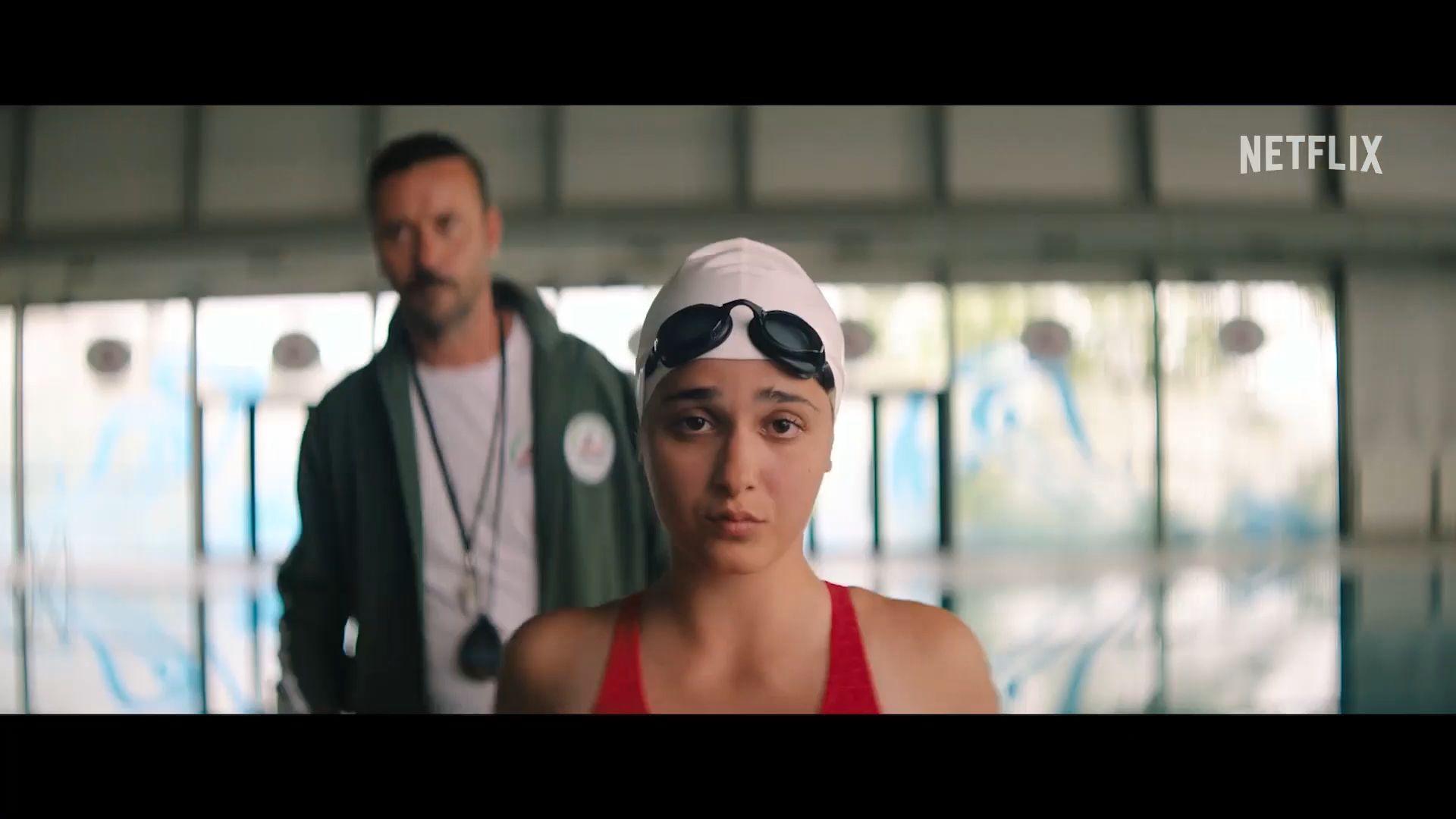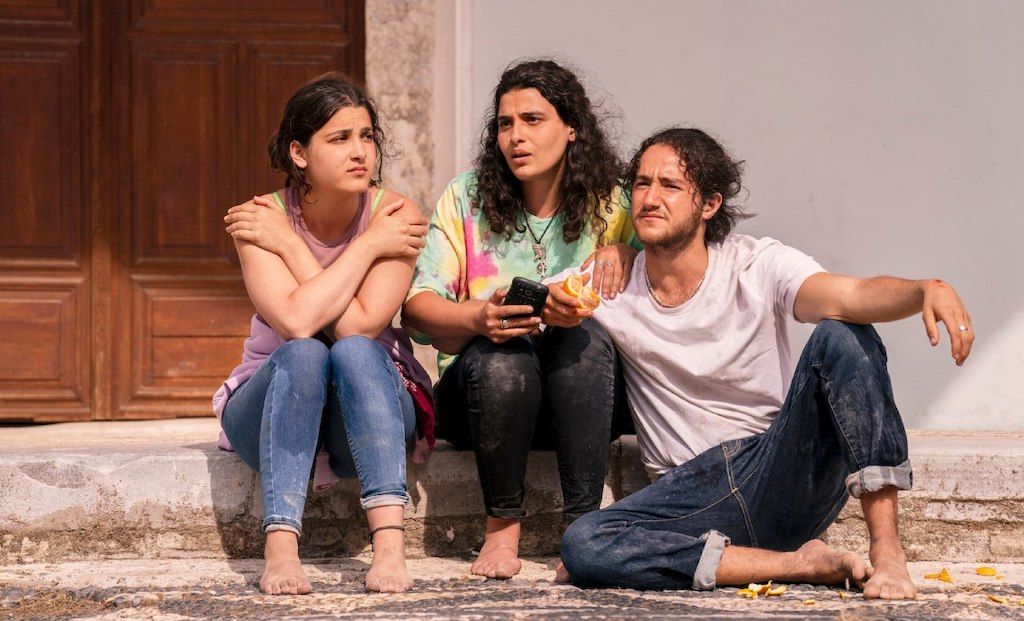By Anina Rudkin, Second Year, English
Directed by Sally El Hosaini, The Swimmers (2022) is an inspirational, nail-biting and heart-wrenching watch, recounting the incredible, real-life story of Yusra (Nathalie Issa) and Sara Mardini (Manal Issa) as they flee from war-stricken Syria, ending up with Yusra amazingly competing at the 2016 Olympic Games as part of the refugee team.
The biographical drama focuses well on the hardships and harrowing injustices that asylum seekers face, with the events at Rio taking up a noticeably small portion of the film. Rather than glamorising Yusra’s extraordinary circumstance, the film brings attention to the more important matters of discrimination and dangers faced by millions of refugees each year - a pleasant surprise when considering America’s culture of sports egotism and fixation with heroising successful Athletes.

Instead, the film highlights the injustice of Yusra’s thriving career compared to most refugees. The girl’s cousin Nizar (Ahmed Alek) vocalises the agonising truth; ‘There’s nothing here to come for, nothing but waiting and paperwork - unless you are the Mardini sisters’.
Nizar makes it clear that while under the title of ‘refugee’, they will be treated as such. Upon their arrival in Greece, they are treated with contempt, with locals shutting their windows and refusing them water. Even after reaching Berlin, the audience faces a powerful yet harrowing shot of the refugee shelter, depicting thousands of people crammed into small, white rectangles with no personal space or privacy.
The Swimmers raises awareness of the fact that many will be forced to stay there for months and even years due to the gruelling and inefficient paperwork process, with many inhabitants falling into a depressive state, unable to work. This presentation challenges the media's narrative of asylum seekers seeking out host nations for resources and employment when in reality, it’s a desperate attempt to avoid death.

The climax of the film takes place on the Aegean sea, as an overcrowded and damaged raft begins to sink, and the girls heroically jump into the sea, keeping the raft afloat until they reach Greece and saving the lives of everyone onboard.
The scene is incredibly tense, yet also disturbing as it focuses upon a mother and her crying child, bringing attention to the injustice that anyone - let alone a mother with a newborn, should be put under such extreme circumstances to escape a war-torn country.

El Hosaini attempts to stay authentic to Syrian culture, delving into its intricacies and taking her time depicting the lively gatherings and close-knit communities, bustling nightlife with vibrant lighting and striking landscapes of Daraya. It’s also notable that a large portion of the dialogue in the film is in Arabic, which is sadly commendable and not expected - considering the Americanisation of cultures in the average Hollywood film.
Academy Award winner Steven Price also pays homage to Syrian culture with the soundtrack’s domination of Arabic music. For the closing credit, Price uses Munir Bu Kolthoum’s track - a hip-hop artist who had to leave Syria after suffering from post-traumatic stress disorder. Rather than whitewashing the soundtrack with popular American pop songs, including Syrian artists shows a refreshing acknowledgement of the country's culture.
The retelling of the Mardini sisters’ inspirational story perfectly captures Ysura’s amazing talent and determination while also bringing awareness to the discrimination and hardships faced by millions. The Swimmers combats the villainisation of refugees by the media, crying out for compassion and change.
Featured Image: Ali Guler/Netflix, courtesy of IMDB
Have you watched this inspiring retelling yet?









